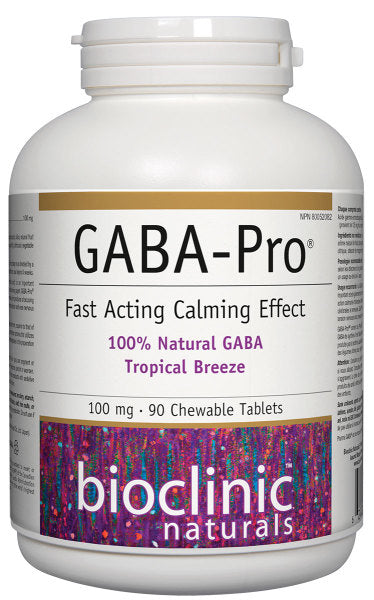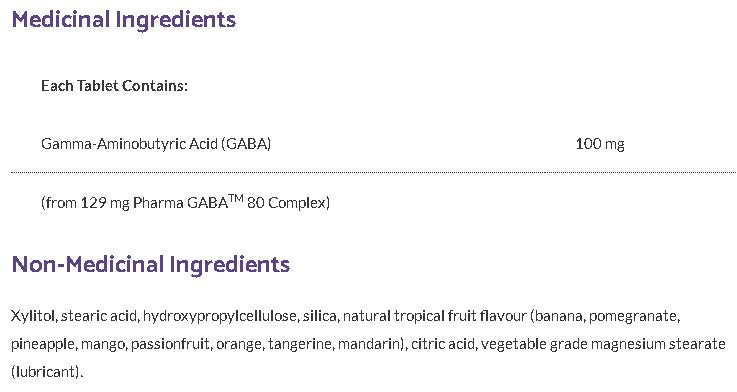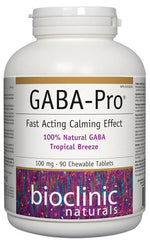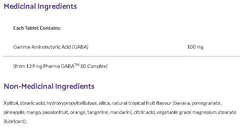



GABA-Pro® · 100 mg Tropical Breeze
- 37.99$
0.00$- 37.99$
- Unit price
- per
Description
x- Uses Pharma GABA™, a naturally occurring form of GABA.
- Made naturally through a fermentation process that uses Lactobacillus hilgardii, the bacteria used to ferment vegetables in the preparation of kimchi, the traditional Korean dish.
- Improves calmness and relaxation in the face of daily stress, soothes nervous tension and reduces the negative effects of caffeine consumption, without causing drowsiness.
- Fast acting - effects can be felt in as little as five minutes and last four to six hours1
- Generally Recognized as Safe (GRAS) status in the United States.
- Delicious chewable tablet with tropical fruit flavor
- Suitable for vegetarians/vegans
Gamma-aminobutyric acid (GABA) is one of the main inhibitory neurotransmitters in the central nervous system, balancing the excitatory effects of glutamate on neuronal activity. The inhibitory effects of GABA are generally considered to reduce anxiety, release muscle tension, and have sedative-like effects. GABA has also been shown to cause a significant increase in alpha brain waves, which are associated with a more relaxed state and improved concentration.
In a clinical trial involving people with vertigo, a control group crossing a suspension bridge experienced a 35% decrease in salivary levels of secretory immunoglobulin A (sIgA), a marker of stress-related decreases in immune system activity. Participants who crossed the same bridge but took GABA-Pro saw their secretory immunoglobulin A levels increase, suggesting a stress-reducing effect.
Many medications used to treat insomnia also target GABA receptors and activity, with effects such as decreased wakefulness, shortened sleep latency, and increased slow-wave sleep.
Pharma GABA is well absorbed and binds to GABA receptors in the peripheral nervous system (PNS), the branch of the autonomic nervous system (ANS) responsible for producing the "relaxation response"—the opposite of the "fight or flight" response. In a double-blind, crossover study, 12 young adult men taking 30 mg of Pharma GABA per meal after an overnight fast experienced significant increases in overall ANS and PNS activities, compared to placebo. This suggests that Pharma GABA may induce relaxation effects by modulating ANS activity.
Produits recommandés
Produits récemment consultés
- Choosing a selection results in a full page refresh.



